About the Bible
It seems to me that the fundamental facts about when, where and by whom the books of the Bible are written, are hushed over, not even talked about, problems are avoided or minimised, leaving ambiguities that mislead the reader and convey a false idea of reality. How can I believe anything they tell me? If God inspired the words, then wouldn’t He have inspired all the correct details? If the Bible is God’s word, wouldn’t he have ensured that translations his people base their lives on, are without error? Then, why are there contradictions? Did God just change his mind about what is right and wrong? What is the point in having a book of rules and instructions that is so open for different interpretations? All these questions makes me think that the Bible contains error and cannot be regarded as 100% full proof evidence of anything. I believe it’s best to treat the Bible like any other historical or non-fiction book, keeping in mind the author, their motivations and situation and the knowledge available to them.
In biblical times people thought the sky was held up by two mountains, and had no idea how far east and west that land extended. Far from their contemplation are facts we know now like the earth being round, revolved around the sun and not the other way round, and that the sun was just one of millions of stars in one of millions of galaxies. These people did not consider people living in lands as far away as Southern Africa, East Asia, the Americas or Australia. They did not know, probably wouldn’t care at all, that these foreign peoples had their own religions, experiences with spirituality and transcendence, their own relationship with “God.” How is one race’s “God” different from another race’s “God”? Only in the way each group has constructed their image of this almighty, incomprehensible power, which was based on their consciousness and experience at the time. Each race had various “prophets” or leaders, who had a deep intuition as to what would be good for their people. These leaders created the rules and often claimed they came from a transcendent God, which, if you believe God is inside us all, this is true. To increase people’s obedience to the rules, they described rewards and punishments akin to their sense of justice at the time.
About Jesus
After much consideration I have come to the conclusion that these are not mutually exclusive options. Jesus was both the son of God, and the son of Man, in the same way that you and I are sons and daughters of God too. Jesus contained God inside him, just as we contain God inside us. Jesus was an expression of God in the same way that you and I are expressions of God too.
In my mind, I accept Jesus as being born of Mary and Joseph, and the doctrine of the Virgin was most likely added to encourage pagan adoption of the new religion. Similarly Jesus did not rise from the dead in physical form, but it seems more likely that the resurrection passages were written allegorically and also taken form pagan religions.
I imagine Jesus was an enlightened spiritual leader and social activist, motivated to make a difference in his world: to help people be happier and experience peace on earth both within themselves and with their neighbours. It would seem more likely that Roman soldiers executed Jesus as they saw his nationalistic freedom fighting as a threat, than caring about the wishes of some Jews who saw him as blasphemous. When Jesus died on the cross, I think it makes sense that he died only in the physical sense, and similar to the presence I feel of my dead grandfather and dead Oma, Jesus’ disciples probably felt Jesus’ spirit with them. They decided not to give up on Jesus’ vision of a socially just world, of non-violence and human rights for the Jews – a realisation that provided them a purpose for their lives, and how they could play out a what in turn can be seen to be a significant role in the evolution of man and civilisation. Hence they set out to continue Jesus’ mission and spread his ‘good news.’
My summary of concluding thoughts
- The Bible is NOT inerrant. It was written, edited and translated by humans, and contains errors and additions throughout.
- The internal claim for inerrancy was made in before a canon even existed!
- The writers of the Bible use folklore, myth, allegory, and Jewish midrash, to convey MEANING, not literal historical event.
- NO, God did not cater for this in advance in order for you to have a complete book of His revelation in your hand to read, just so you can read it without needing to put in effort to learn history and language. God gave you a choice: to think or not-to-think – that is the question. If you do not think, instead accepting other’s authoritative rulings, what difference are you to a robot, a programmed computer?
- Interpreting the bible as literal is a lazy, ungodly attitude, as is accepting everything your church leaders say, just because it is the common interpretation of your denomination’s theology at the present time. A literal interpretation is a MIS-interpretation. Conformity is not a sign of faith.
- The world was NOT created in 6, 24 hour time periods.
- This story is a creation myth; a way of explaining the world that the developing human conscious found itself.
- The tree of knowledge is the beginning of consciousness, becoming aware of our human condition.
- The story has multiple authors and editors immediately evident if you read it – each story is repeated twice, and has been edited together.
- This means the genealogies in the Bible are NOT literal.
- The bible specifies a genealogy between Jesus and Adam adds up to a maximum of 8000 years.
- Fossils are discovered underneath mountains – life that existed before the millions of years it took to geologically form the land mass, dinosaur fossils carbon date to be 60 million years old, the stars in our sky take millions of light years for us to even see them, and we see proof of our expanding universe every on our TV static.
- If the Aborigines have a 30000 year history there is NO WAY POSSIBLE that they can be descendants of Adam.
- These genealogies therefore must be recorded for more-than-literal reasons. Possibly their purpose is to imply Jesus’ connection with the bible and kings – a meaning that tells us a lot more than what the literal one does.
- Hence the Bible is a reflection of one civilisation’s spiritual journey with the sacred, at different points in time.
- There is NO cosmic battle between God and the Devil. Why would a God that is all powerful, require a cosmic battle in a literal sense? No, this narrative is symbolic.
- Jesus says he is “the way, the truth and the life.” This means we must follow his example. That is the way to know God, and the way to live in His Kingdom – Jesus is referring to a state of peace on earth NOW, not another realm where you go when you die.
- Jesus says the most important thing is to love God and love your neighbour as yourself. Jesus never asks to be worshiped himself.
- The theology of the cross was one person’s interpretation of the Bible, 1000 years after Jesus, and 1000 years before today. Theologians debated it, many rejected it, and in the end _ decided to implement it.
- Similarly, the theology of Original Sin. You are NOT born evil. As a baby you are perfect. You are born out of a complete connectedness with the universe and with God.
- No idols on earth – this includes idolising the Jesus and the Bible.
- Son of God = sons of gods; that is, in biblical times, when the bible was written, there was no such thing as capital letters! This is an addition made by Christian theologians throughout history.
- Protestant beliefs have only been around for 500 years,
- “Faith” has not always meant a rejection of reason, the battle between natural science and supernatural religions – until the Enlightenment faith referred to a state of mind and heart, of trust in God. Trust that His Will will be revealed to you, so you can lead the life He wants you to live.
- Jesus was NOT born from a virgin – this element was added whether intentionally for mythological significance or to increase acceptance by pagan gentiles to whom beliefs in virgin births was a typical characteristic of all the gods, or a result of exaggerations over the years of oral tradition.
- Jesus did NOT rise from the dead physically, after three days rotting in a tomb; again this is a pagan concept added in the gap between Jesus’ death and the writing of the gospels.
- He did NOT ascend in a bodily form up into heaven – if he did, he would be blown up by the earth’s atmosphere, and where would he go?
- Mythos is the way people thought … Mythos has been wiped from our conscious, and so it is difficult for us to understand
- All religions ultimately agree on principles that will enhance your experience of life on earth: Love your neighbour as yourself and Love “God” – the magic energy behind life
- The God of the Bible, in fact, is not irreconcilable with science. Our literal interpretation is, but when interpreted in its historical context, suddenly it all makes sense!
- God and science go hand in hand, like two sides of a coin. God is the ‘what’, the meaning, the purpose, the motivation; and Evolution is the ‘how’, the method, the physical manifestation of God’s energy.
- Creation has not finished. We are now the creators with God.
- The purpose of life is to express God – so go forth, love, live, learn, grow and create!
About Faith and God
Does a caterpillar know what it’s future holds as it builds it’s cacoon?
The term God in Hebrew simply means “I am” or “I will be what I will be.” That is, us as a people unfolding our destiny. p289 (Maddox) Us humans can only think within constructions of what we have ever seen, heard and experienced. Hence we construct our image of God in our own image. Throughout history we have personified this power in attempt to comprehend it. Some personified it as aspects of environmental nature like the sun, or as representations of aspects of human nature like greed or love. The Israelites personified this power as the most powerful thing they knew, the king. The imagery in the Bible describes God as the most powerful king, sitting on a throne in a golden luxurious castle, in a city of peace.
People of every culture and time have sought to please this power, so that they may be blessed with food and water, victories at war, sunshine for their crops, and life after death. In earlier times, people thought they must give sacrifices (animal or human) to please this power. Enlightened leaders like Jesus and Buddha realised that this wasn’t necessary. More beneficial to society would be a doctrine on non-violence. Loving each other, even those who do use wrong, will bring about heaven on earth. Heaven and Hell are also images constructed in our earliest consciousness, at a time the only explanation for the sun’s movements was that it was being carried across the sky by angels. Heaven in the sky, amongst the beauty of the stars and the beloved warmth of the sun. Volcanic fires from beneath the earth, brought death and destruction thus explained as creations of an evil God from below.
I think Jesus still lives on today. Not as a person sitting beside his father in the clouds, but in the same spiritual presence we will return into when we die. It seems unlikely that we will keep our separate presence when we die. Our memories and personality is contingent to our consciousness in a particular moment in time, it is not possible to take anything from earth with us when we die, and many of us would not even want to. Instead I imagine that when we die we reconnect in our entirety with the omni-presence of God living on through every person, animal, plant and cell in the universe. To me ‘God’ is everything including you and me. This means I am a Panentheist. Pan = everything, en = in, Theos = God. Everything in God. Are not all religions somewhat Panentheist? This makes sense to me. It is consistent with science, physics, history, other religions, and even with atheists. It seems more biblical than a belief in a supernatural separate God as it emphasises transcendence and God’s presence. It means that we never die, but are even now living out a moment of our eternal life. The most incredible thing about this design is that we are given the choice to live out our present moment in a state of heaven or a state of hell. Individually and collectively this is our choice, and a choice we must make in every moment of every day.
Even Atheists do not deny a great power behind our being, a Great Unknown energy that motivates cells to split, life to live, to evolve and to create. The different between Atheists and Theists seems to come down to whether one wishes to personify this power, or leave it as an abstract collage of mathematical formula and quantum hypothesis. When it comes down to it the circular nature of the Cosmological argument – that something can’t come from nothing, and hence something must have already existed, but where did that something come from – highlights the fact that there will always be some things we can not know.
There exists a connection between all matter in ways we still cannot comprehend, and for this unknown power to be presented as omnipotent (all powerful), omniscient (all knowing), and omnipresent (always present) power, does make sense. In English the personification of this power we name ‘God’. In Hebrew it’s ‘Jehovah’, in Arabic? it’s ‘Allah’ in Japanese it’s Kami, in Spanish it’s Dios and in Indian it’s Deva. Sometimes I think this energy should be named something more descriptively appropriate like many New Age religions and Spirituality movements tend to do, like say The Void Potential or the Fatherly Oneness… The name of this power does not really matter but what I think we must recognise is the common goal of all humans is to have a connection with this power so that we might live out our purpose in the continuing evolution and creation of our world.
Finding fulfillment in our lives
When it comes down to it, what do we all want? “To be happy.” And what does this mean to us? We want to feel peace inside, and be surrounded by peaceful people in a peaceful world. Ultimately this is what all the wise teachers throughout the times have tried to help us get one step closer to this state.
We each hold a significant potential to leave this world in a better place than we arrived. We have been lucky enough to be born into a human body with a human mind – with potentials beyond what we presently realise and imagine. Every day we wake, we breathe, we think and we move, and we can make of that day whatever we wish. We can live for the short pleasures, or the longer-term satisfactions, or a bit of both. Fulfilment is most potent when we are connected with God, when we listen to His signs, when hear His voice inside us, and when we have faith that that voice is guiding you in the way that will most benefit you and the world.
The realisation that nothing lasts forever is another confronting idea, but once you accept it, it is one that frees you from fear. Think about it. Money could be worth nothing tomorrow – our currency could crash and all your hard-earned savings become worthless. Your house could burn down and your home insurance company may fold. You may be left with a big fat nothing. Your wife or husband could pick-up their bags and leave with the kids. Every day we get older, and our appearance perishes. We walk on the streets and drive our cars – constantly at risk of some kind of accident that may kill us, or in many ways worse would be to be left in a deformed state that would burden the people we love. I don’t say these things to increase your fear, but in order to let go of that fear. We crave security yet can never achieve it. Life is in a constant state of transience, it never stops for a break. We can fear the unknown or we can embrace it.
The only certainty in life is death. Hence death is a concept we must not fear, but should embrace, the returning to God and to the oneness of all that is.
Loving our Neighbours
There is a long history of Christians killing Muslims going back to the Spanish Inquisition, where heretics were tortured to death under the justification that it is better to save their soul by torture, then let them live. This killing continues in recent times in Iraq, Bosnia and Kosovo. In the process of colonialism, the West saw their culture as superior and forced people to convert to our culture including converting to our religion in order to be saved. Bringing them ‘out of darkness and into the light’ meant to enculturate them into our civilisation – alternatives were seen as barbaric and primitive. Much of our conception of salvation has to do with making our culture the dominant one.
We can even see the battle cry in War on Terror – for ‘freedom and democracy’ is a belief that our culture is superior. The way to ensure our security is to make everyone think like us. Religion gets tied up in that battle. We do not own god. We cannot fight battles stating that He is on our side. Religion, culture and politics are intertwined so in order to find a peaceful political situation we can start by finding a peaceful religious one.
If we really love our neighbours, we will not judge them, nor condemn, or think of ourselves as better than them. True love is not compatible with a claim to own a single path to God and to be the only religion with access to the Truth. With this attitude, religion will always be divisive force for humanity. Instead we must be empathetic toward each other and desire to learn from other’s connection with God, rather than try to impose our connection on them. We must be honest to ourselves, recognising the unavoidable fact that whichever religion we prescribe, it is but a consequence of our life’s experience that brought us to that acceptance of truth: whether it be the religion of our parents, our partner, our friend, or some inner voice that called you into some particular church. It was not separate from the ethnicity, nationality and culture that you were born into.
Technology has brought people from all over the world together and now we have the opportunity to unite as one species- the most intelligent, creative and powerful species on this planet. We can learn from each other’s experiences with the indescribable spiritual power, and we can re-interpret all we know of it in a way that is relevant to the society we desire today.
Truth
It’s very confusing when there are so many religious beliefs that surround us, especially when those with faith, exalt their own beliefs and denounce the beliefs of others. This confusion is not new, over two thousand years ago when people faced similar circumstances, the Buddha gave them some advice, which I think is good advice for us today:
Do not accept anything on mere hearsay (ie thinking that we have not heard for a long time)
Do not accept anything by mere tradition (ie thinking that it has thus been handed down: through many generations)
Do not accept anything on account of rumours (ie believing what others say without investigation)
Do not accept anything just because it accords with your scriptures
Do not accept anything by mere inference
Do not accept anything by merely considering the appearances
Do not accept anything merely because it agrees with your preconceived notions
Do not accept anything merely because it seems acceptable (ie should be accepted)
Do not accept anything linking that the ascetic is respected; by us (and therefore it is right to accept his word)
But after observation and analysis, when you find that anything agrees with and is conducive to the good and benefit of one and all, then accept and abide by it.
Kalama Sutta, p 3 (Silva, 1994)
Be honest about the gaps in your knowledge
Lack of expertise should not disqualify anyone from participation in important debates, provided that one is honest about the gaps in one’s knowledge. Donald Rumsfeld’s infamous concept of “known unknowns” is helpful here. We cannot know everything, but we can – if we are humble enough – estimate more or less accurately the dimensions of our ignorance.
Rejecting or finding meaning in context?
Do the above findings lead me reject all I have ever learned, seen and felt of God, the value of the Bible and the Christian religion? At first I did reject Christianity- I felt betrayed, like it was all a bunch of lies and that I didn’t know what I could trust. But as I learned more about evolution theory, I saw a mysterious force that seemed to be driving it. As I travelled I continued to talk to ‘God’ and feel ‘His’ comfort. I realised:
- The bible still has worth – it provides a historical foundation of the relationship between Jews and the divine, a base from which we can build upon
- Jesus’ messages were of peace on earth: love our neighbours and love god
- Everything must always be read in its context
- We should explore each other’s histories
- We should try to learn from each other’s relationship and experiences with the divine
- We should join forces together to decifer the facts, frauds and faiths, and to decide on which morals apply today, that will help our world move toward a more peaceful state.
- What is God? ‘God’ is the name we humans (well those who speak English) have given to a personification of the powerful energy behind all that exists. Atheists have simply chosen not to personify this power, and instead leave it as an abstract energy. No one can deny an energy behind life, an energy that creates our and animal’s deep desire to live. Debating the existence of ‘God’ is largely an issue of semantics.
- Other religions also have worth
- Our non-religious history, scientific discoveries and philosophical thinkers, also help us get closer to our ultimate universally shared goal: truth.
- The utmost most important thing for you to do is think for yourself
- We are not separate from our environment or from each other. Our existence is interconnected. We cannot survive without our air, food, water and relationships. Plants transform our carbon to oxygen and provide us our food. God can be seen in every process, every cell, every animal, and inside us. Our existence is not comprised of the separateness we feel in our human defined identities, the separate consciousness of ‘me,’ but our existence is interdependent on everything – we are together, there is no me there is only us. The separateness you experience is a temporary illusion, allowing God to express his creativity and experience different realities. One day we will return to God, we will no longer separate, no longer experiencing the highs and lows – we will return to blissful peace of oneness. This is a place that we can meditate into, experiencing a temporary reuniting with God. This is what Buddhists find as they are enlightened. This is what atheists too believe will be felt when a separate consciousness ceases to be conscious – the return to the state we were in before we were conscious – a return to nothing, a return to everything.
- The most satisfying thing you can do in your life is find your purpose and live it out. Ask how you can provide the most benefit for the most people. Listen to your intuition; this is God communicating with you. Understand your place in the universe and your unique role in fulfilling God’s purpose: to create. God created us and is continuing to create. We are still evolving and this process will never stop. Why does God do this? So that He can know Himself. We have God inside us and we are made in His image. We are God’s expression of himself. As we express ourselves, we express God. Have faith – that by following the signs you will fulfil the purpose of your present lifetime
- How do we love God? Love beauty. Love all people. Love our planet. Be grateful for all you have. Have faith, listen to your intuition and follow the signs that come from the interconnectedness of all life. Live out your role in the universe. Fulfil your potential.
Peace
Is peace possible? I guess that depends on what you think is peace? What does a peaceful world look like? Once we have a vision, it won’t be long before it becomes reality. So yes, I believe peace is possible, and it’s up to us to create it.
If we were to look critically at our religion, identify facts, faiths and frauds, we can set an example for other religions to do the same. By not claiming ownership of absolute truth, others will not feel so unease about disclaiming theirs. Diminishing the arrogance and elitism that comes with a belief that we are the only ones going to heaven, acceptance and tolerance will increase and resentment and enmity decrease. It starts with us and our own personal realm of influence. By changing ourselves, a momentum will begin whereby others follow.
Penn wrote in 1684, ‘Governments rather depend upon men than men upon governments. Let men be good, and government cannot be bad. If it be ill, they will cure it. But if men be bad, let the government be ever so good, they will endeavour to warp and spoil it to their tune.’ (Ferguson 1978 p113)
If we change, our governments will change and our world will change. Conflict may always exist yet violence need not. Violence against others and ourselves, both in thought and in action, is no good for anyone. World peace is not an abstract unachievable dream stated at beauty pageants. Peace is possible, and it starts with you.
Eccl. 3:1-8
A Time for Everything
1 There is a time for everything,
and a season for every activity under heaven:
2 a time to be born and a time to die,
a time to plant and a time to uproot,
3 a time to kill and a time to heal,
a time to tear down and a time to build,
4 a time to weep and a time to laugh,
a time to mourn and a time to dance,
5 a time to scatter stones and a time to gather them,
a time to embrace and a time to refrain,
6 a time to search and a time to give up,
a time to keep and a time to throw away,
7 a time to tear and a time to mend,
a time to be silent and a time to speak,
8 a time to love and a time to hate,
a time for war and a time for peace.
Let us move forward in love, questioning, analysing and thinking for ourselves – it is time for peace!
ONE FINAL FOLLOW-UP NOTE as at October 2009
All of the above was written around 2007 and at the moment I don’t have time to give it it’s deserved attention to editing and making sure everything in it is sources and makes sense. I think it’s important to keep all understands as tentative to the discovery of new information and since this time my understanding of a physical resurrection has now changed. That is, if Jesus’ spirit appeared to the disciples as the Bible says, even fundamentalist Christians if they really think about it do not believe it to be a fully physical resurrection. The Bible says Jesus appeared and disappeared seemingly walking through walls and vanishing into nothing. It also says the disciples did not recognise him at first – this would infer he was not resurrected into his rotting body-corpse. After watching John Polkinghorne on www.meaningoflife.com I realised that a spiritual resurrection on a quantum physics type of level could have been a little bit physical as well. There are so many unknowns so I guess with an open mind we can continue a ongoing conversation on the never-ending pursuit to get a better understanding of the unattainable truth.
In case you want to go back & read some parts again:
Chapter 1 – Introduction Click here
Chapter 2 – Is the Bible the “Word of God”? Click here
Chapter 3 – Is Jesus Christ the “Son of God?” Click here
Chapter 4 – Discussing the contradictions Click here
Chapter 5 – What does this mean for my life today? Click here
For further reading still, check out some developing thoughts on Who, or what is “God”??? Click here

 “Love Is”
“Love Is” 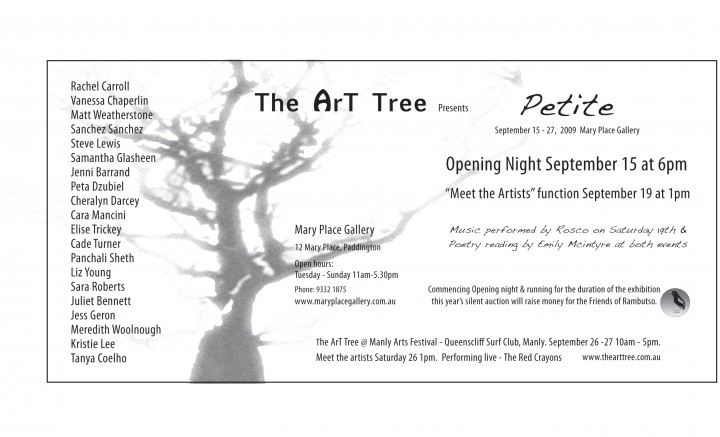


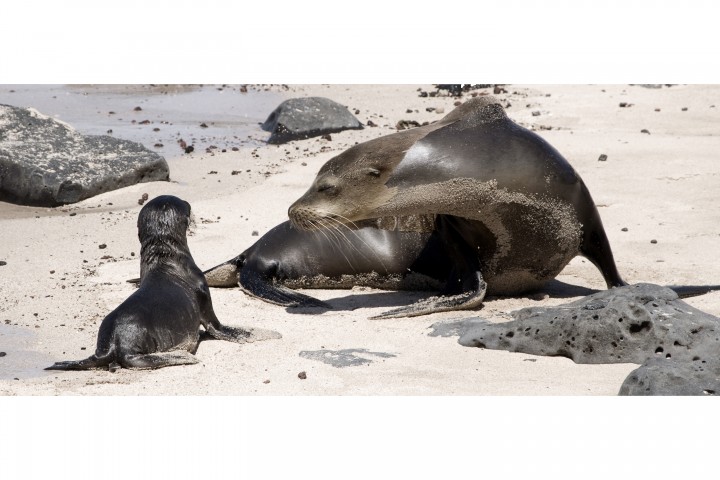







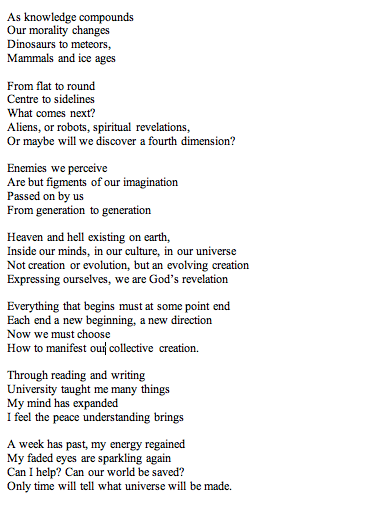




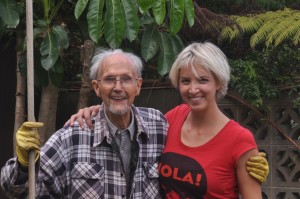
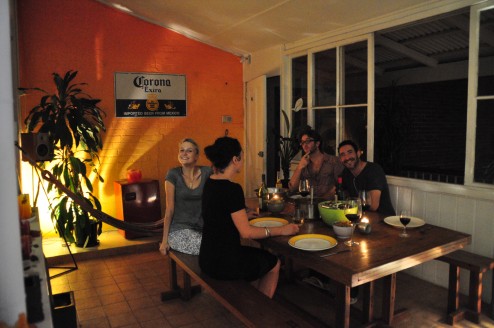
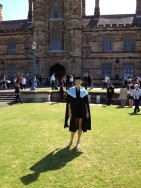 I started part-time work as the Executive Officer of the Sydney Peace Foundation, a small not-for-profit organisation within the University of Sydney who award the annual international Sydney Peace Prize.
I started part-time work as the Executive Officer of the Sydney Peace Foundation, a small not-for-profit organisation within the University of Sydney who award the annual international Sydney Peace Prize.